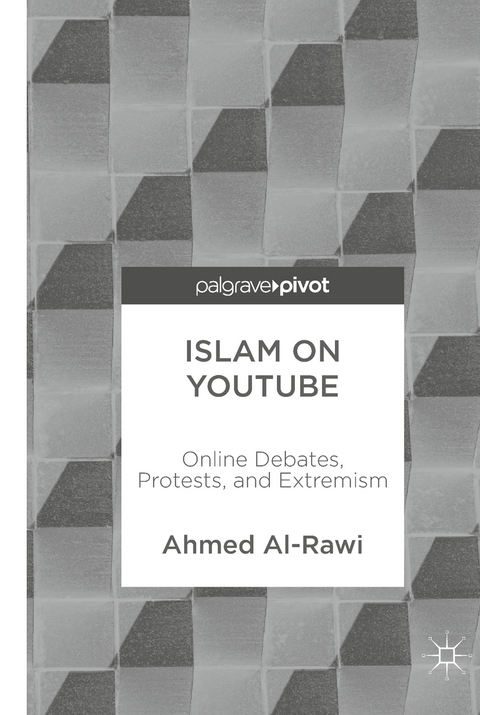
Islam on YouTube
Online Debates, Protests, and Extremism
Seiten
2017
|
1st ed. 2017
Palgrave Macmillan (Verlag)
978-1-137-39825-3 (ISBN)
Palgrave Macmillan (Verlag)
978-1-137-39825-3 (ISBN)
In the concluding chapter, social network and sentiment analyses are presented in order to investigate all the collected comments and videos, while a critical discussion of freedom of expression and hate speech is offered, with special regards to the growing online influence of far right groups and their role in on-going YouTube debates.
This book offers empirical insight into the way Muslims reacted online towards various controversial issues related to Islam. The book examines four cases studies: The Muhammed’s cartoons, the burning of the Quran controversies, Fitna and the Innocence of Muslims’ films. The issues of online religion, social movements and extremism are discussed, as many of the cases in question created both uproar and unity among many YouTubers. These case studies – in some instances – led to the expression of extremist views by some users, and the volume argues that they helped contribute to the growth of extremism due to the utilization of these events by some terrorist groups in order to recruit new members. In the concluding chapter, social network and sentiment analyses are presented in order to investigate all the collected comments and videos, while a critical discussion of freedom of expression and hate speech is offered, with special regards to the growing online influence of far right groups and their role in on-going YouTube debates.
This book offers empirical insight into the way Muslims reacted online towards various controversial issues related to Islam. The book examines four cases studies: The Muhammed’s cartoons, the burning of the Quran controversies, Fitna and the Innocence of Muslims’ films. The issues of online religion, social movements and extremism are discussed, as many of the cases in question created both uproar and unity among many YouTubers. These case studies – in some instances – led to the expression of extremist views by some users, and the volume argues that they helped contribute to the growth of extremism due to the utilization of these events by some terrorist groups in order to recruit new members. In the concluding chapter, social network and sentiment analyses are presented in order to investigate all the collected comments and videos, while a critical discussion of freedom of expression and hate speech is offered, with special regards to the growing online influence of far right groups and their role in on-going YouTube debates.
Ahmed K. Al-Rawi is Assistant Professor at the Department of Communication Studies of Concordia University in Canada and a research fellow at the Media and Communication Department of Erasmus University in the Netherlands.
1. Introduction.- 2. The Muhammed's Cartoons.- 3. Buring the Quran.- 4. Fitna.- 5. Innocence of Muslims.- 7. Conclusion.
| Erscheinungsdatum | 04.11.2017 |
|---|---|
| Zusatzinfo | 23 Illustrations, black and white; XIII, 121 p. 23 illus. |
| Verlagsort | Basingstoke |
| Sprache | englisch |
| Maße | 148 x 210 mm |
| Themenwelt | Geisteswissenschaften ► Religion / Theologie ► Islam |
| Mathematik / Informatik ► Informatik ► Web / Internet | |
| Sozialwissenschaften ► Kommunikation / Medien ► Kommunikationswissenschaft | |
| Sozialwissenschaften ► Kommunikation / Medien ► Medienwissenschaft | |
| Sozialwissenschaften ► Soziologie ► Spezielle Soziologien | |
| Schlagworte | arabic • Extremism • Islam • Middle East • Online Protest • Social Media • Social networking sites • youtube |
| ISBN-10 | 1-137-39825-6 / 1137398256 |
| ISBN-13 | 978-1-137-39825-3 / 9781137398253 |
| Zustand | Neuware |
| Haben Sie eine Frage zum Produkt? |
Mehr entdecken
aus dem Bereich
aus dem Bereich


